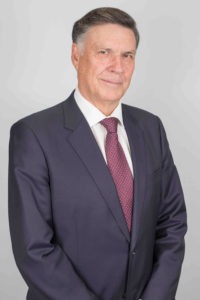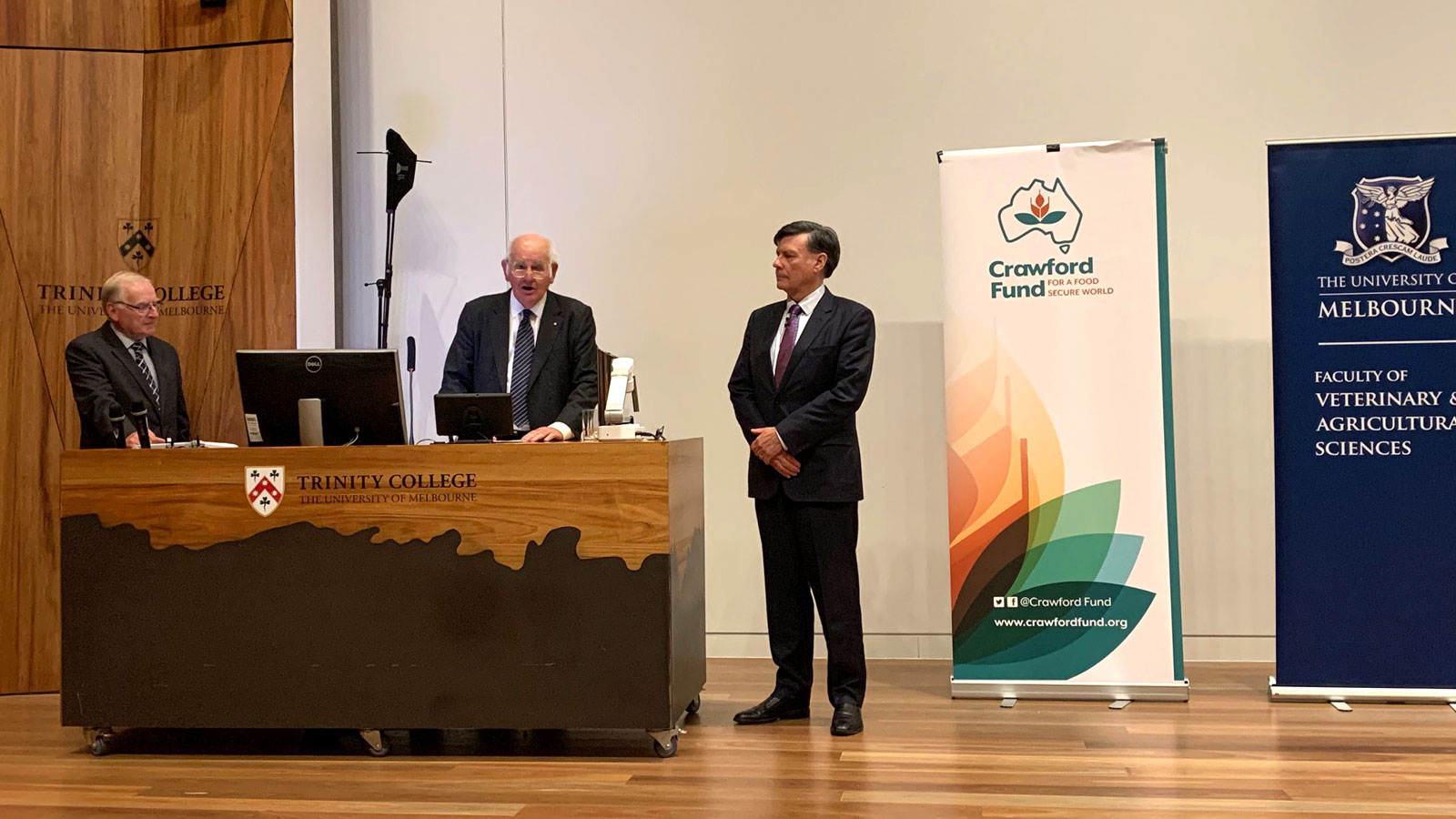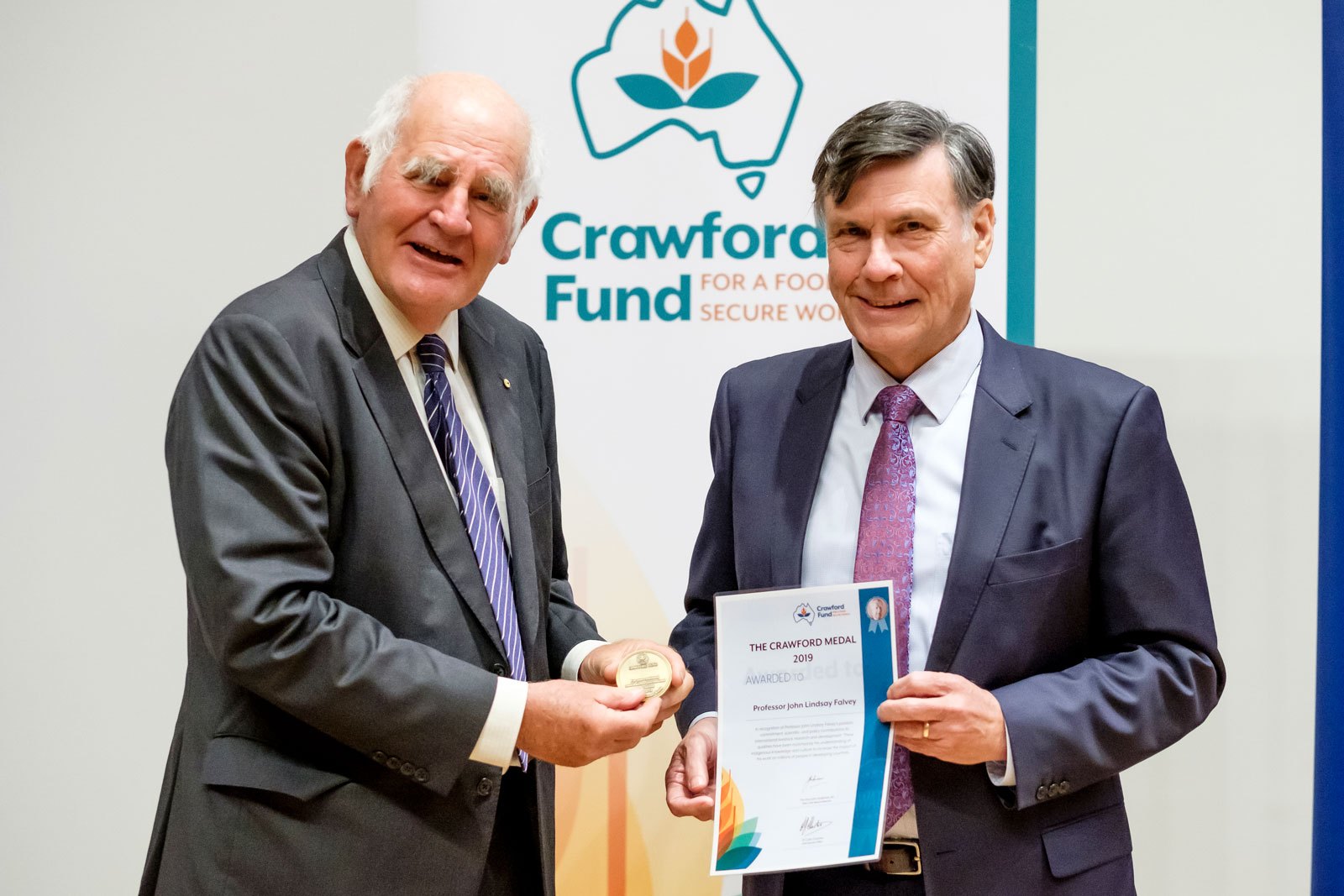

Announcing 2019 Crawford Fund Medal Recipient: Professor Lindsay Falvey
October 17, 2019
 We are pleased to announce that Professor Lindsay Falvey FTSE, FAIAS is the 2019 Crawford Fund’s Medal awardee, after remaining practically and passionately committed for over four decades to the international contributions agricultural science makes to food security. He is Chair of the International Livestock Research Institute, Emeritus Professor of the University of Melbourne, holds two adjunct appointments in Thai universities, and is currently writing on the role of agricultural science in philosophy. Professor Falvey also wrote the biography of the Crawford Fund’s founding director, Derek Tribe.
We are pleased to announce that Professor Lindsay Falvey FTSE, FAIAS is the 2019 Crawford Fund’s Medal awardee, after remaining practically and passionately committed for over four decades to the international contributions agricultural science makes to food security. He is Chair of the International Livestock Research Institute, Emeritus Professor of the University of Melbourne, holds two adjunct appointments in Thai universities, and is currently writing on the role of agricultural science in philosophy. Professor Falvey also wrote the biography of the Crawford Fund’s founding director, Derek Tribe.
Professor Falvey received the medal during a special World Food Day event on 16 October, co-hosted by the Crawford Fund and the University of Melbourne’s Faculty of Veterinary and Agricultural Sciences. The recording of Professor Falvey’s address is available on the FVAS website here.
The free event was held at the University of Melbourne, with over 160 registered to hear the address by Professor Falvey titled ‘NextGen’ Scientists Needed to Build on Historic Successes of Agriculture R4D. The address was part of the Faculty of Veterinary and Agricultural Sciences’ Dean’s Lecture series and both the Dean, Professor John Fazakerley, and the University Vice Chancellor, Professor Duncan Maskell attended. Professor Falvey’s presentation is available here and the recording of his presentation will be available soon.
The Fund’s board member Dr Tony Gregson AM FTSE and our CEO, Dr Colin Chartres presented Professor Falvey with his Crawford Fund medal, and the citation for Dr Falvey’s award.

We were pleased to have Dr Peter Horne, General Manager of Country Programs from ACIAR, open the event and his presentation explained the complex issues being faced now and into the future, particularly in our region, and also voiced a positive message around the important role of the RAID Network and of engaging the ‘NextGen’.
In his address, Professor Falvey noted the proud tradition and role of Australians in the international agricultural development system, recounted some of the world’s agricultural successes and argued why engagement of a new style of ‘nextgen’ who have strong intercultural and integrated skills, including second languages, is so critical for finding lasting solutions to global challenges.
Across more than 40 years of experience in agricultural science, beginning in the Australian tropics in 1972 and thereafter in various Asian nations, Professor Falvey’s research work developed into R&D policies for Asian and other nations and has included such high-security missions to preserving research infrastructure and personnel in conflict situations such as post-1989 Russia for the World Bank, and in the middle of the war in Iraq for Australian aid and ACIAR.
Perhaps the best summary of his contributions was that noted in the award of his higher doctorate that his: “research combining technical, social, environmental, policy and historical research in the developing world, challenged the simple importing of agricultural technology … demonstrated that indigenous knowledge and culture is critical to sustainability, food security and human development, thereby potentially benefitting millions of persons participating in international development projects.”
An opinion piece by Professor Falvey was covered both in Australian rural weekly papers and internationally through the Inter Press wire service, and he was interviewed on ABC Rural for World Food Day.





